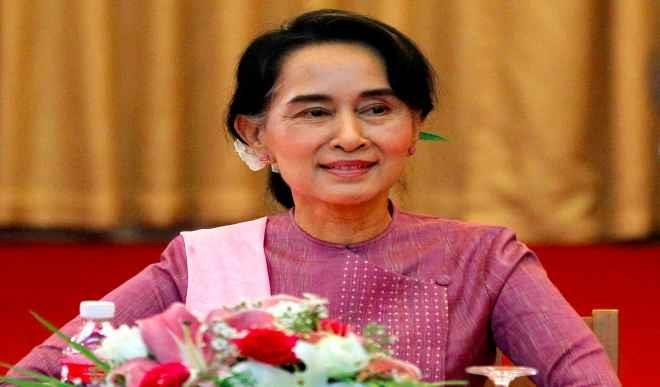Aung San Suu Kyi must share responsibility for Rohingya genocide
The scrupulously conservative UN has finally issued a report calling for the military leadership in Myanmar, including the Commander-in-Chief Min Aung Hlaing, to be investigated and prosecuted on charges of genocide, crimes against humanity and war crimes for the ‘clearance operations’ against the Rohingya in Rakhine state. International observers and NGOs have been trying to […]

The scrupulously conservative UN has finally issued a report calling for the military leadership in Myanmar, including the Commander-in-Chief Min Aung Hlaing, to be investigated and prosecuted on charges of genocide, crimes against humanity and war crimes for the ‘clearance operations’ against the Rohingya in Rakhine state.
International observers and NGOs have been trying to draw attention to Rakhine state for years, and many of us have been calling the situation of the Rohingya a ‘slow motion genocide’ for just as long. But now that the overwhelming majority of the Rohingya population in Myanmar has been pushed over the border to Bangladesh through a coordinated military campaign in the space of just one year, now that it is too late to prevent it or redress it, international legal definitions and the UN have finally caught up.
The path to actual prosecution for the orchestrators of this genocide is long and uncertain. China is expected to block proceedings through the UN Permanent Security Council to refer the country and parts of its government to the International Criminal Court, but prosecution can still be pursued for specific individuals such as those identified in the UN report in ad hoc international tribunals such as those used in the former Yugoslavia, provided Myanmar cooperates. Or, in other words, provided Aung San Suu Kyi, as democratically elected leader of the civilian government in the country, cooperates with the tribunals.
Complicit to the abuses
But will she? She is already identified in the UN report as complicit to the abuses. While her civilian government has no authority over matters of security, and could not order the military to halt their operations or alter the way in which they are conducted, they nevertheless hold power over the political discourse in the country and certain aspects of international relations. And they, including Suu Kyi, have so far opted to use their power to support the military campaign against the Rohingya, block international efforts to investigate and document events on the ground including some previous efforts by UN agencies, and support the Buddhist-nationalist narratives used to justify the removal of the Rohingya from the country of their birth.
For the past year, the international response to the unfolding event in Myanmar has been paralysed by the fear that exceedingly robust criticism would undermine Ms Suu Kyi’s position in the country, and doing so would hand back untrammelled power back to the erstwhile military junta. The West watched patiently as more and more Rohingya refugees poured over the border to Bangladesh, in the hope that Ms Suu Kyi would eventually find a way to assert herself and intervene on behalf of the Rohingya. Some Western leaders who have previously championed human rights and democracy in Myanmar are still in that position now, such as US Senate Majority Leader Mitch McConnell.
The problem with that patience – patience in the face of genocide, remember -, is the underlying premise that Ms Suu Kyi, the Nobel Peace Prize-laureate, was, deep down, on the side of the Rohingya. There has been scant evidence of Ms Suu Kyi ever having had much concern for this Muslim minority in what she herself regards as a naturally Buddhist state. But, if ever she had such concern for this minority among her people, now is the time for her to prove it.
Aung San Suu Kyi should be given an opportunity to fully redeem herself and her country and live up to the ideals of the Nobel Prize which made her a global human rights icon. There is already a template for exactly what she needs to do to rectify the situation. It is set out in the UN Advisory Commission Final Report published last year under the direction of the late Kofi Annan. The Rohingya need that Ms Suu Kyi implement fully the recommendations of the Annan report, including granting them full citizenship. UN agencies must have full access to the country to oversee any return and resettlement initiatives. And all the military officials named in this week’s report must be removed from office, with the view that they shall face an international tribunal in due course.
Now that the verdict of genocide has finally been pronounced, neither the international community, nor Myanmar’s civilian government, can obfuscate or or deflect the issue any longer. It is time to ensure that what remains of the Rohingya community is protected, and that those who committed this genocide against them will be held accountable. Ms Suu Kyi must now turn the tables on the military and help the international community bring the perpetrators of genocide to justice – or herself be prosecuted as an accomplice and enabler of genocide.
Azeem Ibrahim is Senior Fellow at the Centre for Global Policy and Adj Research Professor at the Strategic Studies Institute, US Army War College. Over the years he has met and advised numerous world leaders on policy development and was ranked as a Top 100 Global Thinker by the European Social Think Tank in 2010.
